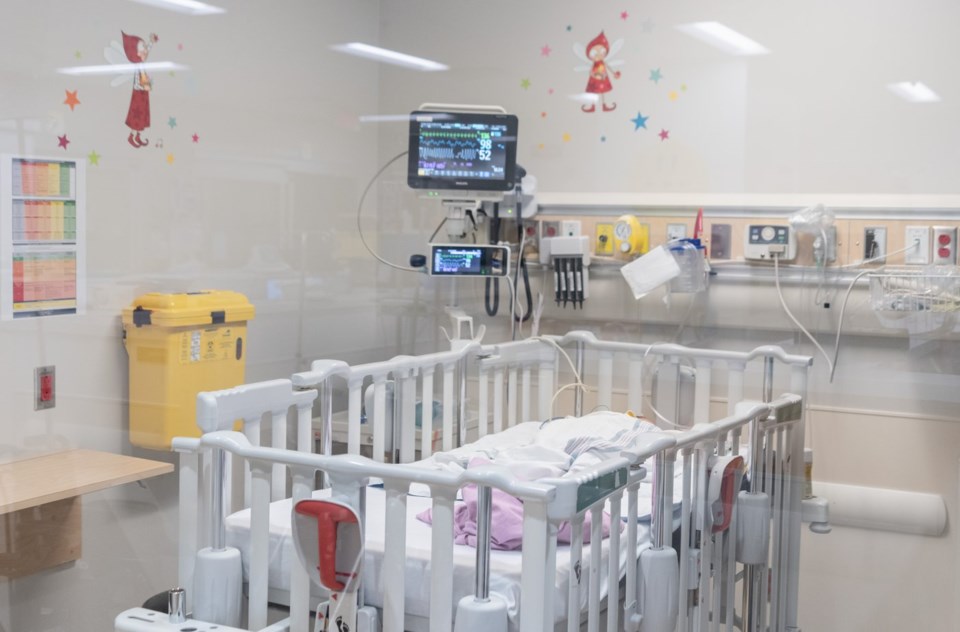
Montreal pediatric hospitals are surging over capacity and asking parents to avoid the emergency department unless their child is seriously ill or injured. Dr. Harley Eisman, interim medical director of pediatric emergency services at Montreal Children’s Hospital (MCH), says the increase in patients is due to seasonal viruses spreading at the same time as walking pneumonia cases.
The mild form of pneumonia often presents as a fever, cough or fatigue, but can be more severe in a small subset of cases. Patients with minor health problems accounted for half of all visits to the emergency room in October at MCH. For the same period, the average occupancy rate was 140 per cent, the hospital says in a release.
Anecdotally, Eisman says they're seeing more than 200 patients per day. “Most of the kids that we're seeing, they are sick. They do have fevers, but they're playing, they're acting as they should, they’re hydrating themselves and they're not in big respiratory compromise.
” At CHU Sainte-Justine, the other pediatric centre in Greater Montreal, more than 40 per cent of its ER visits last month were also patients with minor issues, and in the last week, that’s gone up to 45 per cent. In October, their emergency department capacity rose to 120 per cent, surging to 142 per cent over the last week. The hospitals are reassuring parents that no child in need of medical care will be turned away, but to expect to wait up to six hours or longer to see a doctor if the circumstances are not critical.
They say mild flu, gastroenteritis and fever symptoms that last the usual three to five days can be treated at home. “If your child does have a fever, it's not an emergency. And if you can get a (doctor’s) appointment, it's okay to wait to the next morning.
You don't have to come to the emergency department at 9 p.m.,” says Eisman.
He noted that's not to minimize parents concerns, but to encourage them to seek advice from family doctors, pharmacists, walk-in clinics and health information line 8-1-1, where nurses are available at all times, before going to the emergency department. The Montreal hospitals say in a release parents should take their child to the emergency room if they have trouble breathing, seem usually confused or tired, if they can’t retain fluids while vomiting and having diarrhea or if a baby under three months old has a fever. Injuries, head trauma, broken bones, cuts that need stitches, eye injuries and burns that blister also warrant a visit.
Still, determining when to go to the emergency department can be difficult to navigate, says Dr. Sarah Khan, a pediatric infectious disease specialist at McMaster Children's Hospital. She says the Hamilton hospital isn't seeing a surge beyond what's expected at this time of year.
"I think the main sort of red flags we want parents to be thinking about when making that decision is — is the child having difficulty breathing to the point where they are labouring with their breathing?" Khan says. Bluish discoloration around the face or an inability to hydrate enough also warrant emergency treatment, she says. "When it doubt, those are the red flags we would definitely recommend coming in for.
" This report by The Canadian Press was first published Nov. 15, 2024. Canadian Press health coverage receives support through a partnership with the Canadian Medical Association.
CP is solely responsible for this content. Hannah Alberga, The Canadian Press.














